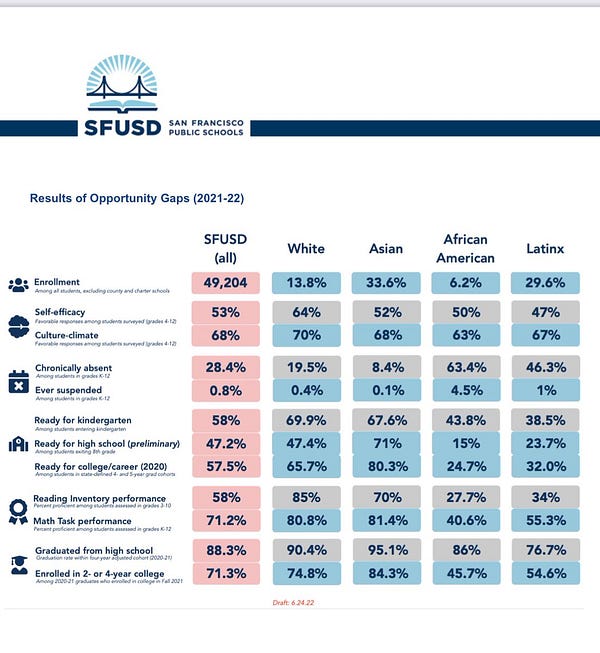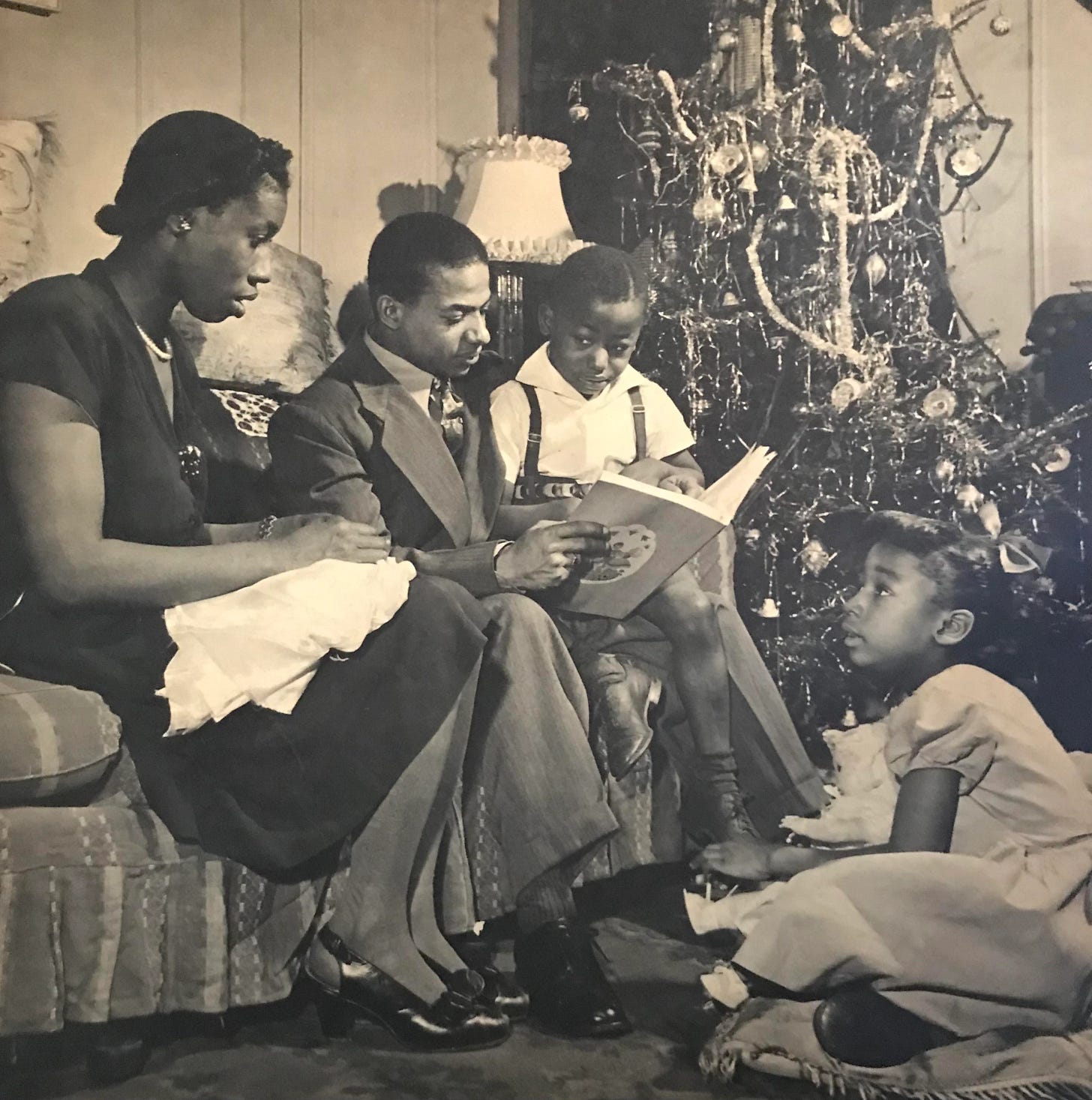Somebody in the San Francisco Unified School District central office had the very bad idea to release the school’s “opportunity gap” data this week, and you can bet that dude’s looking for some new employment, because these numbers make the SFUSD look very, very bad:


You can see that these data represent not just an immediate catastrophe but a much larger looming one: The utter failure of the city to meaningfully educate its black student population is bad in the short term and disastrous in the longer one, insofar as the effects of miserable schooling tend to multiply over time. Can’t pass your 5th grade reading test when you’re in 4th grade? That’s no good. Can’t read above a 3th grade level when you’re 22? That’s armageddon.
On the one hand this does reflect poorly on the city’s school system, and that’s probably not unfair; San Francisco is like nearly every public school system in the country over the past 30 years or so, which is to say it does its job very expensively, very tediously and very poorly. The school allotted $1.1 billion to fund the entire district last year, about $28,000 per student, nearly double the national average—and yet still they can’t teach a huge percentage of their charges how to do basic math over the course of 12 years. Shameful.
Yet we might go a little easy on them only insofar as the larger problem is not the school but the family. This is obvious. Here is a very simple and inarguable contention: Overwhelmingly, if you have a strong, cohesive, functioning family unit, the children in that unit are going to get well-educated, somehow. Good parents take a strong, active interest in the education of their children—they keep abreast of what their children are learning, they review the materials, they discuss the lessons with their children, they help their children with subjects in which they struggle. If their children are getting a substandard education, the parents quickly figure out some way to fix the situation—they yank their kids from the school, say, or they demand the school get its act together, or else they break the door down and do it themselves. If you have a strong family, you don’t end up with 85% of your children “not ready for high school” and roughly 75% of them at below reading level.
The problem is families. The black American family over the last few decades has shattered; Census Bureau data show that fewer than 40% of black children live in two-parent households, compared to about 75% of white children and around 85% of Asian children (Hispanic children, whom the SFUSD hilariously dubs “Latinx,” live in two-parent households at about the rate of 61%). It is of course possible for single parents to raise well-educated children. But, as with everything else in single parenthood, it’s a lot harder—and in any event a culture of broken families, particularly one in which marriage is often never a factor in the first place, will naturally bring with it the sort of chaotic dysfunction that is inimical to good education.
Standard education has its limits, and they are very clear and inarguable. If you want good education you need strong families doing the work of educating their children—you need mothers and fathers marrying each other, living under the same roof, loving their children, rearing them, taking an active interest in their lives, and helping them out on a daily basis. Making this happen at scale will require a whole-society effort, with governments, civic organizations, local and national leaders and authorities encouraging the creation, maintenance and thriving of strong, good families.
Somehow I doubt that the communists who run so much of American public education will go for that sort of thing, communists being by-and-large aggressively hostile toward the family in the first place. Don’t worry, though, San Francisco is spending another $1.1 billion on its school system next year, so maybe it’ll stick this time.



